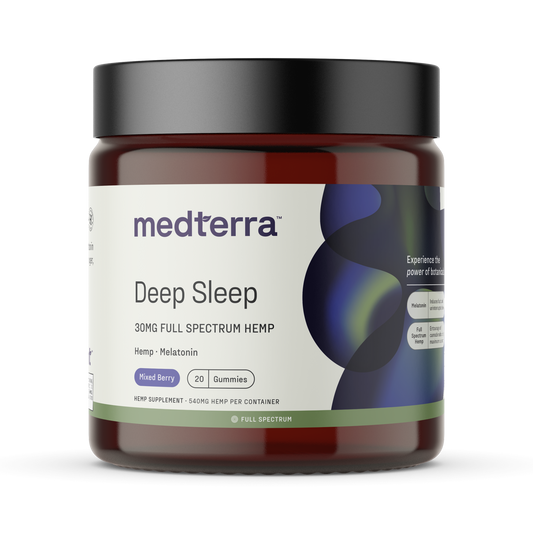If you’re contemplating CBD, there’s undoubtedly a reason. Maybe you’re feeling sore or achy after your gym sessions, or restless at bedtime with racing thoughts you can’t turn off, or burnt out around midday with no energy to carry you through. Regardless of what led you to consider CBD, you probably want to know one thing more than anything else—is this compound I’m putting in my body actually going to work?
If it’s not, you don’t want to waste your time or money. But if it is, you need to know ASAP so you can start feeling the relief you deserve (spoiler alert: prepare for the latter).
How CBD Works
If you’re looking for a short and sweet answer, you should know that CBD and the bodily systems it interacts with are complex. As a result, the way that CBD works on the brain and body is inevitably complex, too.
But that doesn’t make it any less effective.
So what’s actually happening when people claim physical, mental, or spiritual relief from a quick dose of CBD? Let’s dive into the basics—first, the system, then CBD’s role in it.

The Endocannabinoid System
Plain and simple, CBD interacts with our Endocannabinoid System (ECS). The reason CBD is cited to have such wide-reaching effects is that our ECS is one seriously powerful network of neurotransmitters and receptors.
It doesn’t just affect one thing—like an on and off switch for a particular sensation—but is instead connected to many of our most important bodily functions, like a massive power grid that links far-reaching cities.
It’s referred to as the “universal regulator” for a reason
1.
The ECS plays an integral role in maintaining your body’s homeostasis, a sort of internal balance that keeps things running smoothly.
This includes
2:
- Motor control
- Cognition
- Mood and emotion
- Behavior motivation
- Immune system functioning
- Physical sensation
- Sleep organization 3
Okay, that’s a lot to unpack right there. But seriously, our ECS is that important and that all encompassing. Throughout the day, our ECS is sending and receiving signals that regulate these various functions and more.
So where does CBD come into play?
CBD’s Role Within the Endocannabinoid System
The “signals” that influence our ECS are called endogenous cannabinoids (or endocannabinoids, meaning they’re produced inside the body), whereas CBD is considered an exogenous cannabinoid (meaning it’s produced outside of the body, specifically in hemp and marijuana plants).
Not such a big difference, right?
Whether exo or endo—internal or external—the two are very closely related. In fact, the endocannabinoid system only came to light after the 1964 discovery of THC and CBD
4, two of today’s most popular exogenous cannabinoids.
Their closely related names are an indication of just how much they share—important things like function, structure, and application. CBD influences the ECS, much like endocannabinoids do, meaning it affects the same bodily functions and internal systems, including sleep, mood, cognition, and more. Like two sides of the same coin, they may have slight differences but they still fit into the same slot machine.
What’s one major difference? CBD is a compound you can control.

How CBD Is Commonly Used
Most people that swear by consistent CBD usage aren’t necessarily concerned with the science behind it all—neurotransmitters, homeostasis, the endocannabinoid system, and so on. Instead, they’re concerned with how they feel—that feeling is overwhelmingly good, by their accounts.
If you’re interested in taking CBD for a particular concern or discomfort, you don’t just want to know that CBD works. You want to know that it will help with your thing, whatever that may be (after all, there’s a long list to choose from). Let’s go through some of the most common reasons for enjoying CBD to answer that question—does it work?—once and for all.
Does it work for…
-
Nervous energy? – Regular CBD use has a calming effect 3. For you, this could mean mitigating stress responses, like a fast heart rate or sweaty palms, and replacing those negative feelings with relaxation, a sense of ease, and tranquility.
-
Sleeping problems? – If you’re having trouble sleeping due to restless energy, panicked thoughts, or general unease, then knocking down those barriers with CBD may help eliminate your sleep troubles, too.
-
Low energy levels? – Taking CBD during daytime hours has been shown to increase wakefulness and alertness 6. If getting through the day is a consistent difficulty for you, then a dose of CBD in the morning or afternoon may be just the thing you’re looking for.
-
Physical aches and discomfort? – The mind and body are intimately connected—CBD plays a role in both. Studies have shown CBD may help reduce exercise-induced inflammation 7 and everyday discomfort, while improving physical mobility and activity levels 8.
-
Memory? – CBD has exhibited “memory-rescuing effects,” helping subjects retrieve memories they had previously forgotten 9. While some people may try to tell you that CBD messes with your brain function, the opposite is actually true.
See How CBD Works For You
Still not convinced of CBD’s widespread, far-reaching effects? Then you’ll just have to try it yourself. Once you feel the difference firsthand, you won’t be asking whether or not it works anymore—you’ll just know.
- Journal of Young Investigators. The Endocannabinoid System, Our Universal Regulator.
- Alcohol and Alcoholism. The endocannabinoid system: physiology and pharmacology.
- British Journal of Pharmacology. Endocannabinoid signalling: has it got rhythm?
- Medical Cannabis Handbook. The Discovery of the Endocannabinoid System.
- Psychopharmacology. Involvement of serotonin-mediated neurotransmission in the dorsal periaqueductal gray matter on cannabidiol chronic effects in panic-like responses in rats.
- FEBS Letters. Cannabidiol, a constituent of Cannabis sativa, modulates sleep in rats.
- European Journal of Pain. Transdermal cannabidiol reduces inflammation and pain-related behaviours in a rat model of arthritis.
- Frontiers in Veterinary Science. Pharmacokinetics, Safety, and Clinical Efficacy of Cannabidiol Treatment in Osteoarthritic Dogs.
- Psychopharmacology. Memory-rescuing effects of cannabidiol in an animal model of cognitive impairment relevant to neurodegenerative disorders.















